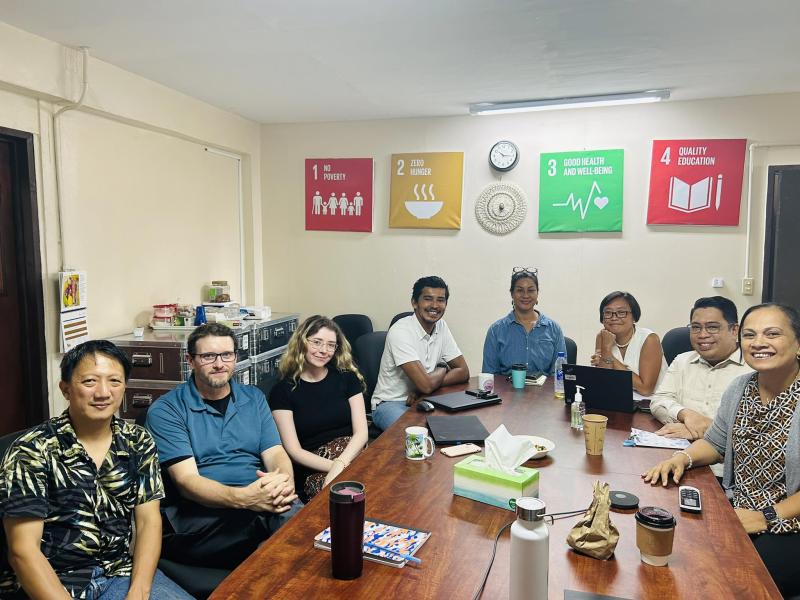Kyra Haberlin is a UN Youth Volunteer Climate Change and Youth Associate with the UN Resident Coordinator’s Office (UNRCO) in the Federated States of Micronesia. Her assignment is fully funded by the Government of Ireland. Based in Pohnpei, Kyra shares how she helps reduce plastic waste and build resilience to climate change through youth engagement.
My assignment covers five countries: the Federated States of Micronesia, Kiribati, the Republic of Marshall Islands, Nauru and Palau. I work with the United Nations and government partners to coordinate climate change adaptation and youth projects.
One of these is the Climate Security in the Pacific Project of the UN Development Programme (UNDP). This project is funded by the UN Secretary-General’s Peacebuilding Fund (PBF) and implemented by UNDP and the International Organization for Migration (IOM). It strengthens the understanding, implementation and coordination of risk management strategies to address key climate security risks in the Republic of Marshall Islands, Tuvalu and Kiribati.
Since arriving in Pohnpei, I have witnessed a high level of litter. This is partly due to the sheer quantity of materials and products that have to be imported, but also because there are limited disposal areas, waste treatment and recycling centres. --Kyra Haberlin, UN Youth Volunteer Climate Change and Youth Associate with the UNRCO, Micronesia
In Pohnpei, imported products are often past their use-by date when they reach the island. It is too expensive and would be a major logistical operation to send these products back to their port of origin or to another area for disposal. Therefore, we face a build-up of waste and plastic pollution on the island.
This is why World Environment Day 2023 is a big deal for us.
Finding durable solutions to plastic pollution should be a concern to all of us, as it affects our lives. It alters habitats and reduces the ability of our ecosystems to adapt to climate change, thus directly impacting the livelihoods of millions of people. --Kyra Haberlin
In my view, it is hugely important to empower youth in the low-lying atoll islands of Micronesia. These islands are among the most vulnerable to climate change, due to their geographical location and limited resources to build resilience to climate-related risks. The World Bank warns that Kiribati, for example, faces a potential long-term threat from permanent inundation, and many of its low-lying islands may become uninhabitable within the 21st century.
Young people are tuned into discussions around climate change and are extremely interested in learning how to combat its effects, especially in this region, as it affects their lives so intricately. Youth are keen to be involved in the topic and we need to ensure that they have the space to speak. --Kyra Haberlin
Through the use of social media, for example around World Environment Day, it is even easier to engage young people in conversation. As part of my assignment, I help to engage young people through digital platforms on international days and other themes, like Girls in ICT. I support updating and presenting to Governments the UN Micronesia’s Country Implementation Plans, which are country specific strategies based on the UN Sustainable Development Cooperation Framework 2023-2027.


